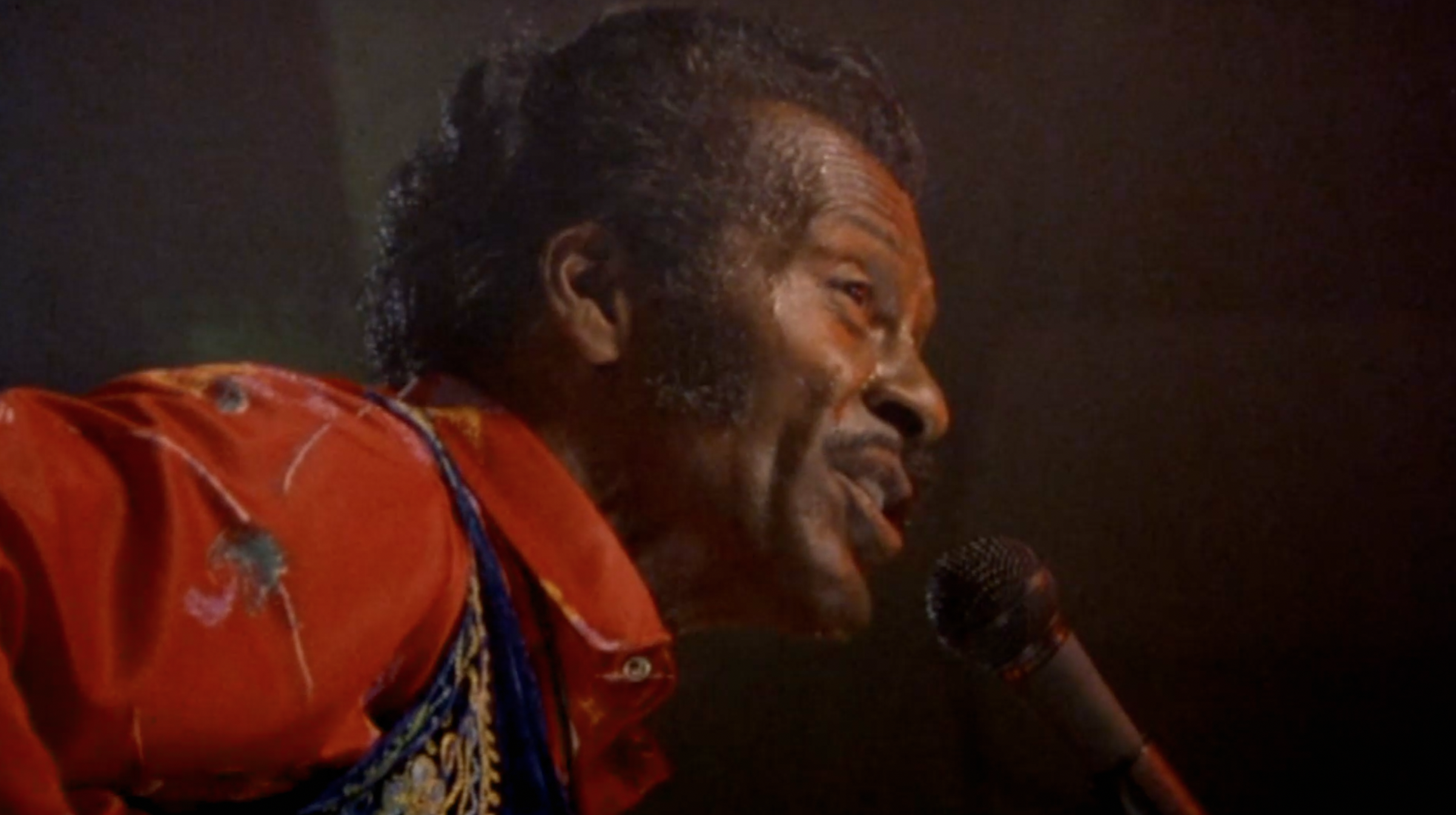
Chuck Berry: The Original King of Rock ‘n’ Roll explores the life and legacy of the rock and roll pioneer in this feature-length documentary.
Berry signed with Chess Records in Chicago and the rest is musical history. Leonard Chess’s son, Marshall, represents the record company on screen. The singer would become known for songs such as “Maybelline,” “Rock and Roll Music,” “Johnny B. Goode,” and many more. “Maybelline” needed 36 takes before the song went to print.
Jon Brewer, hand-picked by the Chuck Berry estate, directs the film. Brewer weaves in archival footage with interviews about Berry’s musical legacy. Some of the footage is taken from the previous Berry concert documentary, Chuck Berry Hail! Hail! Rock ‘n’ Roll, from 1987. It’s hard to tell sometimes which interviews are original and which are archival. The film also marks the first interview from Berry’s wife, Themetta “Toddy” Berry. Both Toddy and son Charles Berry Jr. offer a personal view of living with Chuck Berry.
John Lennon appears in archival footage performing with Berry. Meanwhile, Ronnie Wood and Paul McCartney appear in conversation to discuss his legacy. The Beatles and Rolling Stones came over during the British Invasion and were playing Berry’s musical. To give you an idea of his legacy, the Stones recorded at Chess Records in Chicago. People were crazy about the British bands and didn’t realize that the music was already in the United States before then!
The film also includes Berry’s trial for violating the Mann Act. He was accused of taking a 14-year-old across state lines. Would a white person have gotten away with such an act? No doubt this was pure racism at hand. This wasn’t the only racism that Berry faced. When Southern radio stations learned he was Black, they stopped playing his music. In fact, Gene Simmons called Southern radio stations for not playing Berry’s music due to his skin color.
“The white guys didn’t go to jail,” Berry bass player Jimmy Marsala says. “The Black guys went to jail.”
A segment of the film discusses all of Berry’s awards and in some instances, he was the first musician to be honored.
In terms of Berry’s legacy, the concert film helped introduce his work to a new generation. Back to the Future did so as well when Michael J. Fox performed “Johnny B. Goode.” Interestingly enough, the Gibson ES-345 guitar featured in the film (set in 1955) wouldn’t get introduced until 1958. A clip from Pulp Fiction is shown.
Berry’s final Blueberry Hill performance came in 2014. His health started taking a turn for the worst in 2015. He would mumble and make words up when forgetting the lyrics. Appropriately, footage is shown from Berry’s memorial.
DIRECTOR: Jon Brewer
FEATURING: Chuck Berry, Steven Van Zandt, George Thorogood, Joe Bonamassa, Gene Simmons, Alice Cooper, Joe Perry, Themetta “Toddy” Suggs, Charles Berry Jr., John Lennon, Bruce Springsteen, Keith Richards




